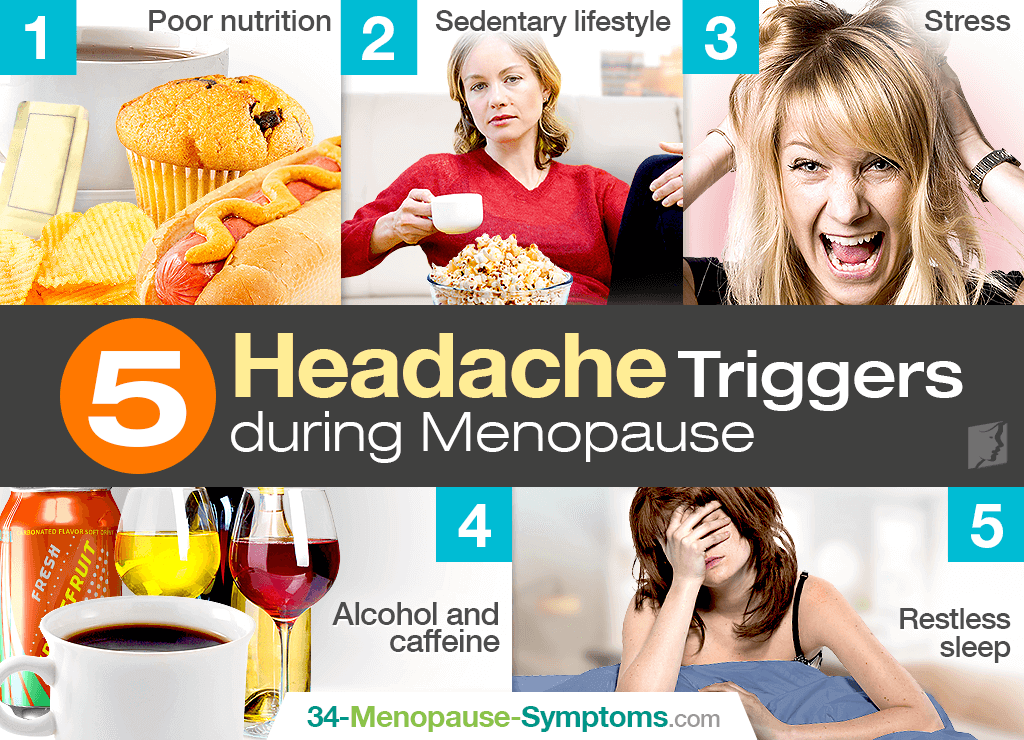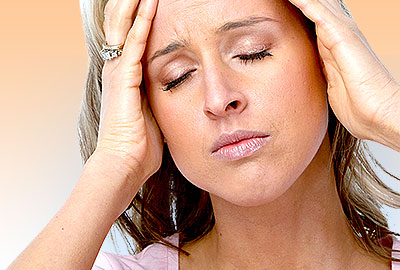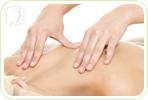An imbalance of estrogen and progesterone is often to blame for headaches as women are transitioning out of their fertile years. However, there are many triggers of headaches during perimenopause that many women may not realize is causing or exacerbating the symptom.
Find out five common headache triggers during menopause in addition to what actions you can take to finally rid yourself of the throbbing discomfort.
Poor Nutrition
Consuming an abundance of processed and refined foods has a detrimental effect on overall health, which may be felt especially acutely during menopause. Food additives like the sweetener aspartame and preservative monosodium glutamate (MSG) are also famous for triggering headaches or migraines in addition to fasting or skipping meals.
Sedentary Lifestyle
Recent studies have discovered that physically inactive people are more likely to suffer from non-migraine headaches than those who are active. There seems to be no association between migraines and activity levels. Also, without stress-relieving, regular exercise, there may be built-up tension in your neck and shoulders, which can trigger headaches during perimenopause.
Stress
Stress is a common trigger of a type of headache known as a tension headache as well as migraines during menopause. Unconsciously responding to any daily stressors by grinding your teeth, tensing your muscles, or tightening the shoulders may only make headaches worse. Accordingly, keep stress under control by partaking in meditation, breathing techniques, yoga, tai chi, etc.
Alcohol and Caffeine
Because excessive alcohol intake can cause dehydration, and dehydration can be a major headache trigger, women should consider switching out alcoholic beverages for water or herbal teas. Also, both alcohol, like wine, and highly caffeinated beverages are known to trigger migraines.
Restless Sleep
Whether your sleep is disturbed from night sweats or you just can't turn off your brain, waking up the next morning can involve one groggy, mess of a headache. In contrast, oversleeping during the day, thus disrupting nighttime rest, may also trigger headaches. Ensure you have a comfortable and supportive mattress as well as ideal sleeping conditions to promote optimal sleep.
Key Takeaways
It's easy enough to blame uncontrollable factors like hormones for health problems during menopause, though your own actions could also exacerbate symptoms. Leading an unhealthy lifestyle with poor diet; sedentary habits; excess stress, alcohol and caffeine intake; and poor-quality sleep may all trigger headaches during menopause. As such, it can be said that a healthy modification of lifestyle tendencies is a key step in preventing many health conditions. Click on the following link for more useful information about how you can finally treat headaches and the menopause symptoms that may be worsening them - like night sweats - once and for all.
Sources
- Drinkaware. (2016). Alcohol Poisoning - Symptoms, Causes, and Effects. Retrieved December 20, 2018, from https://www.drinkaware.co.uk/alcohol-facts/health-effects-of-alcohol/effects-on-the-body/alcohol-poisoning/
- Mayo Clinic. (2018). Headaches: Reduce stress to prevent the pain | Migraine: Symptoms & causes. Retrieved December 20, 2018, from https://www.mayoclinic.org/diseases-conditions/tension-headache/in-depth/headaches/art-20046707 | https://www.mayoclinic.org/diseases-conditions/migraine-headache/symptoms-causes/syc-20360201
- National Sleep Foundation. (n.d.). Waking up with a throbbing head? Find out what may be the root cause. Retrieved December 20, 2018, from https://www.sleep.org/articles/waking-up-with-headache/
- The North American Menopause Society. (n.d.). My-Oh-Migraine: Hormonal Headaches & Menopause. Retrieved December 20, 2018, from https://www.menopause.org/for-women/menopauseflashes/women%27s-health-and-menopause/my-oh-migraine-hormonal-headaches-menopause
- Winter, A.C. et al. (2011). Association between lifestyle factors and headache. The Journal of Headache and Pain, 12(2), 147-155. doi: 10.1007/s10194-010-0286-0




